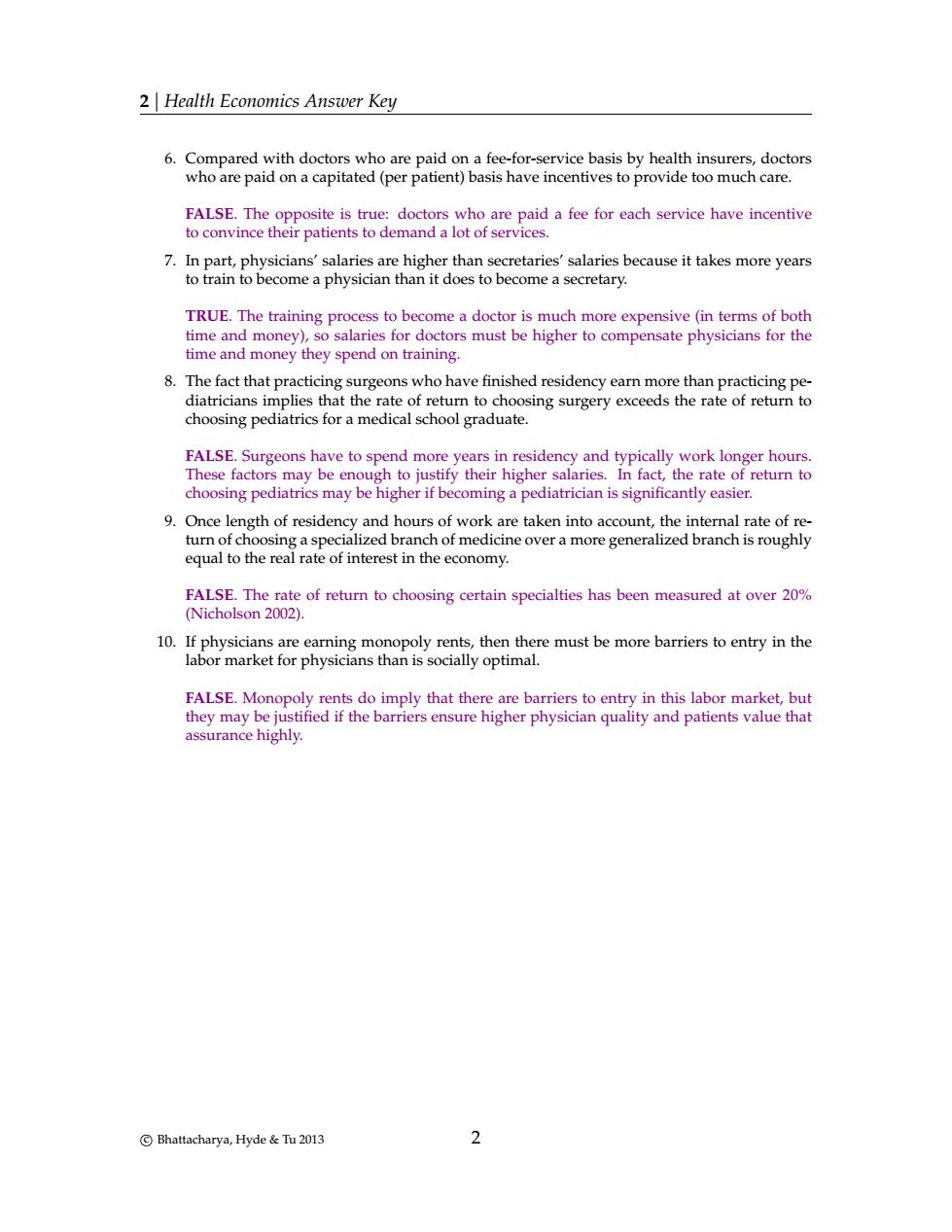正在加载图片...

2 Health Economics Answer Key 6.Compared with doctors who are paid on a fee-for-service basis by health insurers.doctors who are paid on a capitated (per patient)basis have incentives to provide too much care. 7.In part,physicians'salaries are higher than secretaries'salaries because it takes more years to train to become a physician than it does to become a secretary. cess to become a doctor is much more e nsive (in terms of both time and money they spend on training. 8. choosing pediatrics for a medical school graduate. ing surgery excee 9.Once length of residency and hours of work are taken into account,the internal rate of re e economy FALSE.The rate of return to choosing certain specialties has been measured at over 20% (Nicholson 2002) e must be more barriers to entry in the Bhattacharya,Hyde &Tu 2013 22 | Health Economics Answer Key 6. Compared with doctors who are paid on a fee-for-service basis by health insurers, doctors who are paid on a capitated (per patient) basis have incentives to provide too much care. FALSE. The opposite is true: doctors who are paid a fee for each service have incentive to convince their patients to demand a lot of services. 7. In part, physicians’ salaries are higher than secretaries’ salaries because it takes more years to train to become a physician than it does to become a secretary. TRUE. The training process to become a doctor is much more expensive (in terms of both time and money), so salaries for doctors must be higher to compensate physicians for the time and money they spend on training. 8. The fact that practicing surgeons who have finished residency earn more than practicing pediatricians implies that the rate of return to choosing surgery exceeds the rate of return to choosing pediatrics for a medical school graduate. FALSE. Surgeons have to spend more years in residency and typically work longer hours. These factors may be enough to justify their higher salaries. In fact, the rate of return to choosing pediatrics may be higher if becoming a pediatrician is significantly easier. 9. Once length of residency and hours of work are taken into account, the internal rate of return of choosing a specialized branch of medicine over a more generalized branch is roughly equal to the real rate of interest in the economy. FALSE. The rate of return to choosing certain specialties has been measured at over 20% (Nicholson 2002). 10. If physicians are earning monopoly rents, then there must be more barriers to entry in the labor market for physicians than is socially optimal. FALSE. Monopoly rents do imply that there are barriers to entry in this labor market, but they may be justified if the barriers ensure higher physician quality and patients value that assurance highly. c Bhattacharya, Hyde & Tu 2013 2